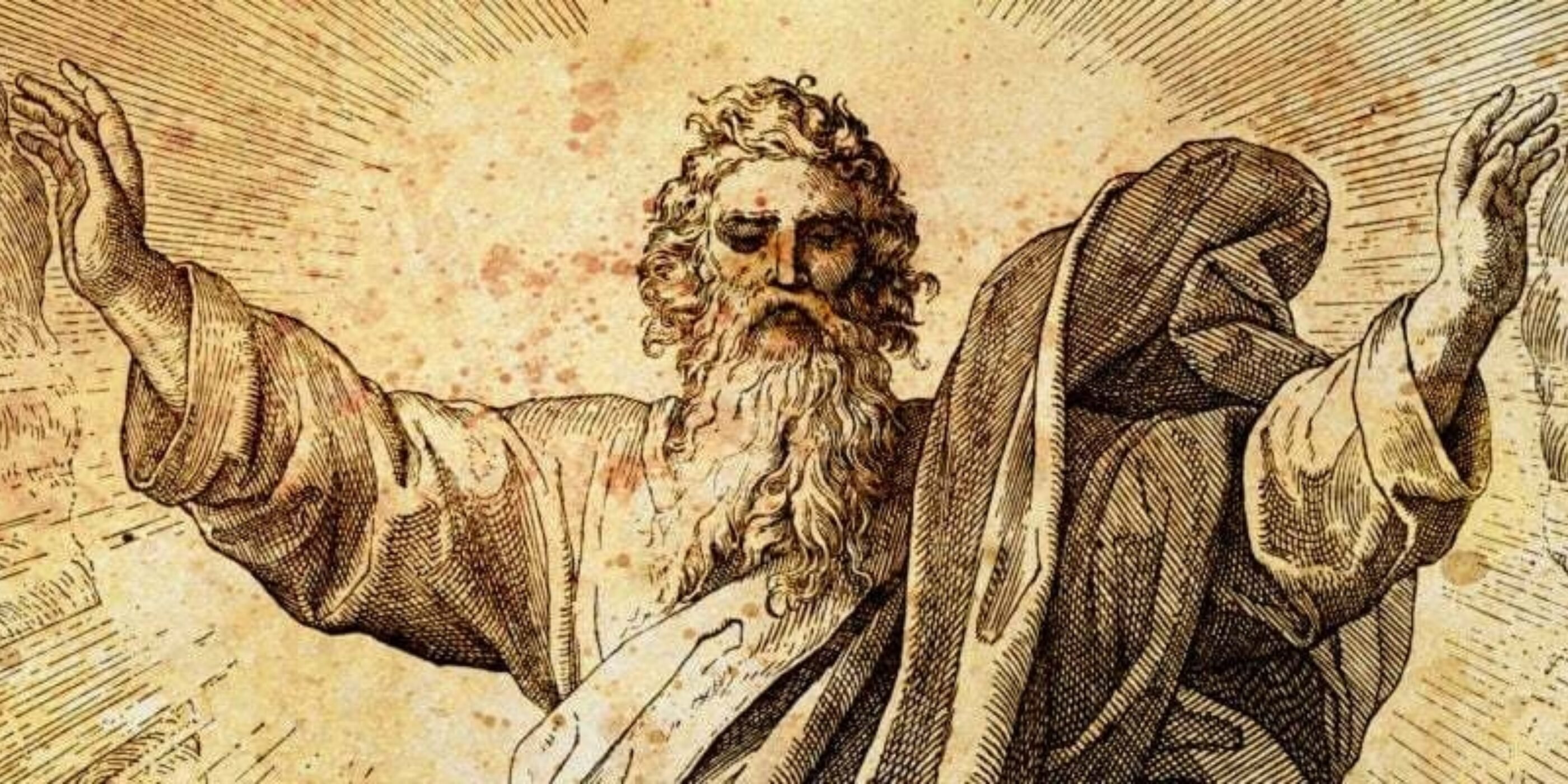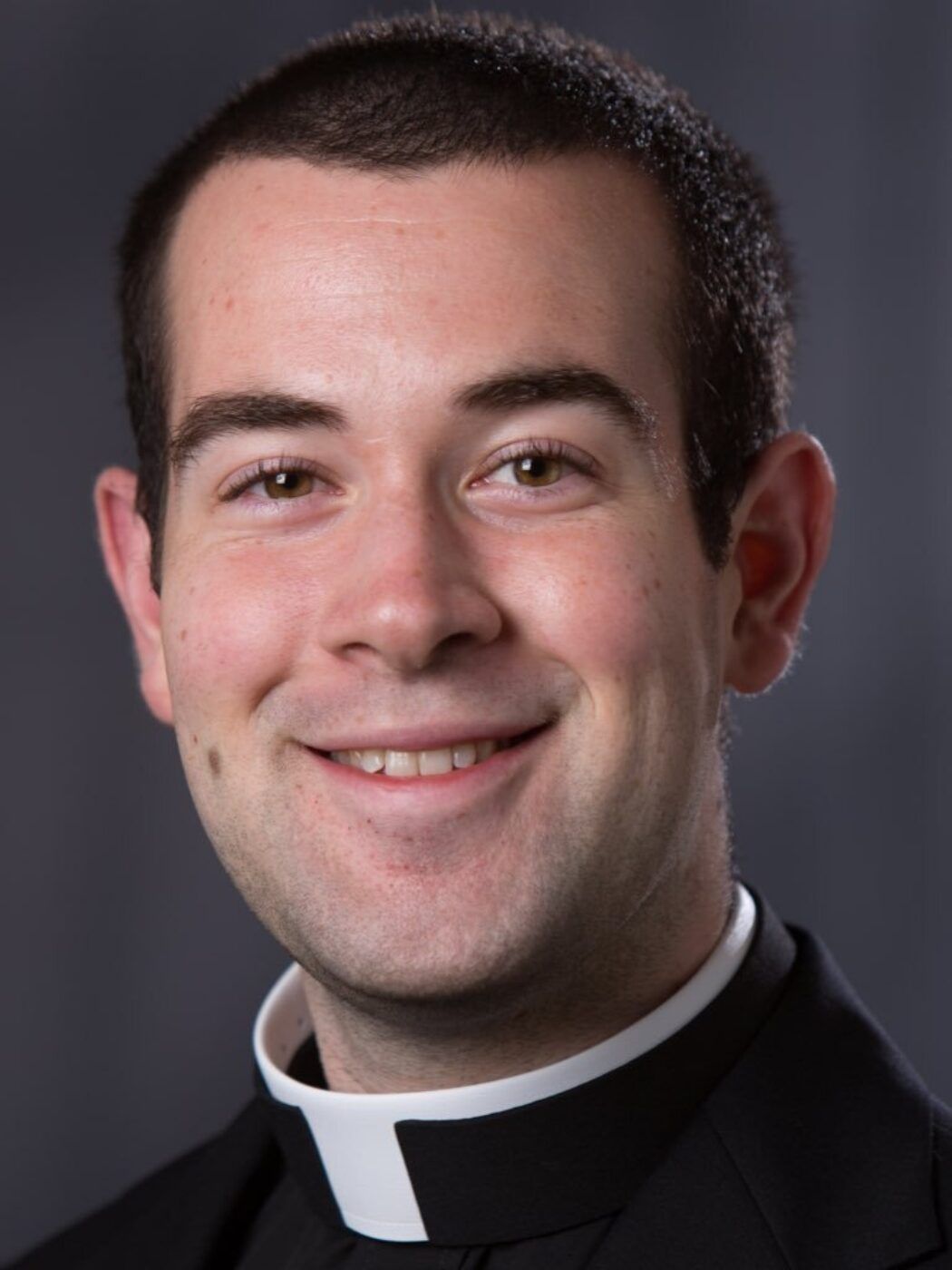One of the most iconic moments in American film is the confrontation between Luke Skywalker and Darth Vader in The Empire Strikes Back. In the culminating moments of their lightsaber duel, Darth Vader reveals to Luke, “I am your father.” Luke is struck to the core, devastated, shattered. Why? Why does it matter so much? Because we tend to resemble our fathers, often in subtle ways that we don’t even recognize. Aspects of their personality even subconsciously bend their way into our own personality. If we have a good father, this is to our advantage. We have a leg-up in acquiring goodness, we’re predisposed to certain virtues, and various facets of a good life come to us with ease. If our father isn’t so good, then we have a challenge to overcome the false presuppositions, the obstacles, and the weaknesses which we may inherit from him. And so a central thread of Star Wars tackles this very question: will Luke take on the image of his father? Will he embrace the dark side? Will the son be doomed to follow the destiny of the one who brought him into being?

If it is a crushing burden to learn that your father is a villain, the converse is also true. To learn that one’s father is good is a joy. It fosters peace of soul, inner contentment and safety, and a sense of pride and respect. I mention all this because a fundamental aspect of Jesus’ message and mission is to reveal to us that God is our Father. It’s not a throw-away line. It carries all the implications which we might hope for. It means that God takes an active interest in our lives. That he is bound to us forever, and we to Him. That by being in this relationship with Him, we will take on aspects of His own personality. This explains some of the very striking passages of Scripture in which God seems to ask for things beyond human capacity. In the book of Leviticus the Lord tells the Israelites, “You are to be holy, because I am holy.” And in giving commandments to His people, He justifies each one by repeating, “I am the Lord, I am the Lord.” The Lord has made a covenant with His people, which makes them family with God, and they are to take on the family resemblance. Jesus concludes His sermon on the Mount in similar fashion, telling us, “Therefore be perfect, as your Father is perfect.”
The fatherhood of God may be something we take for granted because we’ve heard it in the background of our prayers all our lives. But it’s a radical assertion. This isn’t something which all religions accept. One of the prime reasons put forth by members of the Sanhedrin for the condemnation of Jesus was that He was a blasphemer who claimed God as His Father, a relationship to the divine so direct that it appeared audacious. To call God our Father appears to go against the divine transcendence. It seems to bring God too close. And so it is that we proclaim at each Mass before saying the Our Father: “At the Savior’s command, and formed by divine teaching, we dare to say…”

That God wishes to have such an intimate relationship with us is something that ought to induce awe. Of ourselves, we have no right to call God our Father. We have been given this right, this heritage, by our adoption as sons and daughters. God made the first move. He sent us His own Son, born of the Virgin Mary, true God and true man, to bridge that impassable divide. We can make contact with the Father through Jesus Christ. As St. Paul reminds us in today’s Second Reading, this comes through our Baptism, by which we were incorporated into Christ’s redeeming death and resurrection.
Having such a Father, we can approach Him with the confidence of children. We can ask, seek, and knock, knowing that the One who hears our prayers is a loving Father. Knowing that our God doesn’t consider it beneath His dignity to enter into relationship with humble creatures. It doesn’t diminish His majesty, rather it raises us up to surpassing heights beyond our hopes.
Part of this elevation, this new dignity which has been bestowed on us, is that we do indeed want to take on the likeness of the Father. We want to take on the traits of our Father in heaven, clothing ourselves with goodness, justice, mercy, kindness, compassion, steadfastness in the truth, generosity. It’s not the work of a day but a lifetime. Just as children grow up and mature, we hope to do the same interiorly, in our spiritual life. This isn’t dependent on age. Some children are very spiritually mature, while some elderly people remain as yet immature in the spirit, underdeveloped in their relationship to the Father.
But as long as we draw breath, we can grow. God is with us, sustaining us, nudging us in the right direction, calling us to reach new heights. And since becoming like God is not natural but supernatural, it’s so important that we use the proper means. It’s not just about “trying harder,” but growing in fidelity and appreciation for the sources of God’s action within us - the sacraments, prayer, and the works of mercy. Our own weaknesses aren’t an obstacle because we aren’t relying on our own strength here. Resemblance to the Father is a work of grace. Any and all growth in the divine image is itself the gift of the Father.
This week, brothers and sisters, let us give thanks for the fact that Jesus has shown us that God is not an uncaring force, a distant being, but a loving Father who cares about us and wants to lead us into happiness by making us holy, just as He is holy. May our worship of the sacrament of the Lord’s Body and Blood today root us more firmly in our identity as sons and daughters of adoption, crying out to God, “Abba, Father.”


